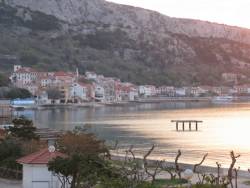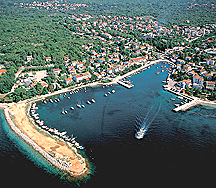The 11th RIN Baška GNSS Conference will take place May 7 – 9, 2017, in Baška, Krk Island, Croatia, organized jointly by The Royal Institute of Navigation (London, UK), Faculty of Maritime Studies (University of Rijeka, Croatia), and the Faculty of Transport and Traffic Sciences (University of Zagreb, Croatia), with technical co-sponsorship from Beihang University of Aeronautics and Astronautics (Beijing, China).
The abstract deadline is February 6, 2017. Please contact Renato Filjar.
The 11th RIN Baška GNSS Conference will take place May 7 – 9, 2017, in Baška, Krk Island, Croatia, organized jointly by The Royal Institute of Navigation (London, UK), Faculty of Maritime Studies (University of Rijeka, Croatia), and the Faculty of Transport and Traffic Sciences (University of Zagreb, Croatia), with technical co-sponsorship from Beihang University of Aeronautics and Astronautics (Beijing, China).
The abstract deadline is February 6, 2017. Please contact Renato Filjar.
The conference focuses on GNSS resilience and GNSS applications development. This year’s subjects include, but are not limited to:
- core satellite navigation systems’ developments and modernization,
- satellite-based augmentation systems (SBAS),
- space weather and ionospheric effects on GNSS performance and operation,
- GNSS applications for air, marine, land and personal navigation, Location-Based Services, Intelligent Transport Systems, and Search and Rescue (SaR) operations,
- resilience development against natural (space weather and ionospheric) and artificial (jamming, spoofing and meaconing) disruptions of GNSS services,
- statistical and digital signal processing for electronic navigation and weak signal detection,
- GNSS receiver design (including Software-Defined and Cognitive Radio),
- advanced multidisciplinary GNSS applications (in geomatics, transport, navigation of autonomous rovers, data science, remote sensing, agriculture, geodesy, forestry, tourism, environment protection, meteorology and science),
- GNSS advancements, parallels and alternatives,
- cognitive aspects of navigation,
- GNSS education and professional advancement,
- regulatory and legal aspects of GNSS utilization.
A series of special sessions will outline the most recent developments:
- Resilient GNSS developments, GNSS parallels and alternatives,
- Statistical signal processing, deep networks and Bayesian estimation in positioning methods and techniques, and
- GNSS for autonomous and connected aircrafts, vehicles and vessels
Please contact Ms. Sally-Anne Cooke or Mrs. Marija Šimić-Hlača for further information.




